Practical and user-friendly software is crucial for the insurance industry, as it has the potential to transform the way operations are handled. By simplifying complex, repetitive tasks, convenient and flexible software solutions improve efficiency and enhance customer experience. Insurance professionals, including agents and administrators, rely on specialized software for billing, claims management, and day-to-day operations. The more tailored the software is to the specific needs of the insurance sector, the more efficient, responsive, and customer-focused the service becomes.
The insurance software market is experiencing rapid growth and is projected to reach $5.5 billion by 2031. This growth highlights the increasing importance of adopting the right technology in the industry. Choosing the right software solution can significantly impact productivity, streamline processes, and ultimately improve customer satisfaction.
This guide highlights Top claims management software providers leading the way in innovation and functionality within the insurance industry.
What is Insurance Software?
Insurance software refers to various tools and systems designed to assist various professionals—such as managers, agents, and administrators—working within insurance companies. These systems often incorporate advanced technologies like artificial intelligence (AI) and machine learning, which automate and optimize basic processes. By doing so, they enhance service delivery, improve operational efficiency, and support seamless interactions between insurance providers, staff, and customers.
Smart administrative and management software solutions offer a range of benefits. For instance, they facilitate better-organized document management, simplify policy administration, and automate workflows, reducing the time and resources required to complete tasks. On the customer side, insurance software empowers clients by allowing them to access their policies, check status updates, complete forms, make payments, and manage other vital actions through an intuitive online portal.
Insurance software improves internal processes and fosters better customer relationships by providing easier access to information and services. Carriers and MGAs also depend on distribution management platforms to oversee their producer networks – software that automates licensing compliance, appointment tracking, and agent onboarding across all 50 states. According to Producerflow’s distribution management team, these back-office systems handle the operational infrastructure that keeps agent networks compliant and productive, even though this technology remains largely invisible to policyholders. By embracing these digital solutions, insurance agencies can stay ahead in a competitive market while improving service quality and efficiency.
Factors to Consider When Choosing Insurance Claims Management Software
When choosing insurance claims management software, evaluating several key factors will ensure the software aligns with your business needs, improves operational efficiency, and helps drive your digital transformation. Below are the most important considerations to keep in mind:
1. Automation & Workflow Optimization
The main advantage of modern insurance claims software is its ability to automate repetitive tasks and optimize workflows. Look for software that reduces manual input, speeds up claims processing, and minimizes human error.
Automation of routine tasks like data entry, document management, and communication with customers can significantly improve efficiency and reduce administrative burden. This, in turn, allows adjusters and claims managers to focus on higher-value activities, enhancing overall productivity.
2. Integration Capabilities
For any new software to be successful, it must seamlessly integrate with your existing systems, such as CRM, accounting, policy management, and legacy platforms. Syncing data across multiple systems ensures that your organization can operate without disruptions.
Insurance software that is built with robust API capabilities makes integration smoother, reducing the risk of data silos and ensuring that your teams can work with real-time data without switching between different platforms.
3. Data Security & Compliance
Insurance companies handle sensitive customer data, and the security of that information is paramount. Look for software that adheres to industry-standard security protocols such as encryption, multi-factor authentication, and role-based access controls.
Compliance with SOC 2 Type 2, HIPAA, and GDPR is also non-negotiable. The software should enable your team to follow strict data privacy guidelines while protecting customer information from unauthorized access or breaches.
4. Scalability
Your business will likely grow and evolve, so selecting insurance claims software that can scale with your organization is essential. Scalability refers to the software’s ability to handle increasing claim volumes, adapt to new business needs, and integrate emerging technologies without requiring a complete overhaul.
Scalable solutions ensure you don’t have to switch to a new system every few years as your operations expand.
5. Technology & Innovation
The pace of innovation in the insurance software space is rapid, with the latest solutions incorporating AI, machine learning, and data analytics. A forward-thinking software solution will leverage these technologies to enhance decision-making, predict trends, and offer insights into claims handling.
Solutions that utilize advanced analytics can help assess risks, detect fraud, and improve claims processing, ultimately enhancing your claims operation’s overall efficiency and effectiveness.
6. User Experience and Interface
An intuitive user interface ensures that claims adjusters and staff can efficiently navigate the software and quickly complete tasks. Look for a platform that offers an easy-to-use dashboard, real-time access to claims data, and customization options to tailor workflows to your specific needs.
A good user experience minimizes the learning curve and boosts employee productivity while improving customer service quality.
7. Cost Considerations
The cost of implementing claims management software should be weighed against the expected return on investment (ROI). While it’s essential to assess the upfront costs, such as license fees and implementation expenses, don’t overlook hidden costs, such as training, data migration, and system maintenance.
It’s essential to consider the total cost of ownership over time, including the cost savings from automation and efficiency improvements. Research indicates that automation can reduce claims processing costs by up to 30%, making it a worthwhile investment for most insurers. Additionally, consider the cost of continuing with outdated systems, which can incur significant maintenance fees and operational inefficiencies.
8. Implementation and Integration Timelines
Finally, consider the timeline for implementing the software. Some solutions may take years to integrate fully, while others are designed to be operational in weeks. Data migration, testing, and training can be time-consuming, so choosing a solution that fits your organization’s capacity for change is important.
Companies that offer fast implementation with minimal disruption can ensure a smooth transition and allow your business to realize the benefits of the new software more quickly.
List of Top Insurance Claims Management Software
Here’s a list of top insurance claims management software that aids insurance companies in handling and assessing claims. These solutions typically offer workflow automation, document management, and the ability to capture policy details, track litigation actions, and evaluate settlements to streamline the claims process.
1. LexisNexis

LexisNexis delivers cutting-edge data analytics and claims solutions that help insurers identify fraud, assess risks, and optimize claims processing. Their tools are designed to enhance decision-making and operational efficiency.
Company Identification:
- Over four decades of expertise in legal and insurance analytics.
- A recognized leader in fraud detection technology.
- USP: Industry-leading analytics and fraud detection capabilities.
- Key Offerings: Risk Assessment, Fraud Detection, Claims Management Solutions.
- Industries Served: Insurance, Financial Services, Legal.
2. Guidewire Software

Overview: Guidewire provides a comprehensive policy administration, billing, and claims management platform. Their cloud-based solutions empower insurers to innovate while delivering exceptional customer experiences.
Company Identification:
- Serves over 450 insurers globally.
- Offers a unified ecosystem for insurance core, digital, and analytics solutions.
- USP: All-in-one insurance platform with a focus on cloud adoption.
- Key Offerings: Claims Automation, Analytics, Policy Management.
- Industries Served: Property and Casualty Insurance.
3. Sapiens
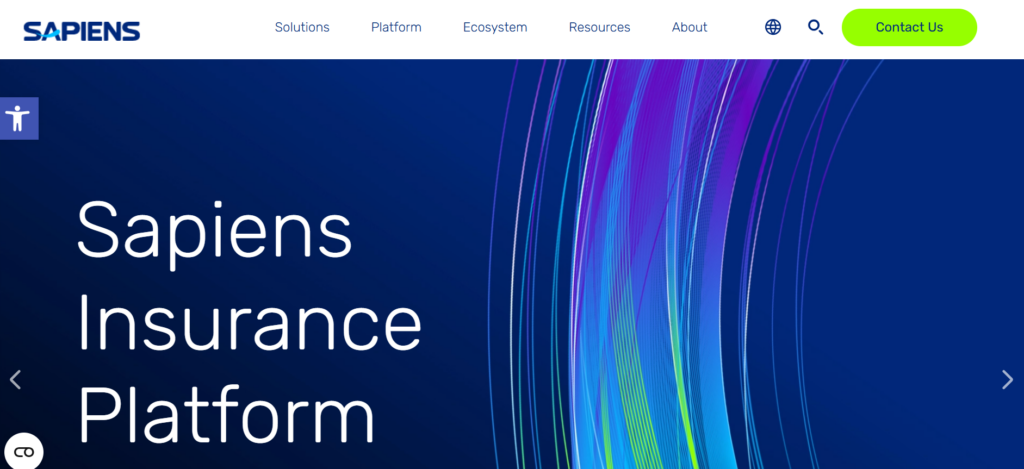
Sapiens offers modular claims management solutions that simplify complex workflows, enabling insurers to adapt to changing market needs. Their tools focus on digital transformation and operational efficiency.
Company Identification:
- More than 40 years of innovation in the insurance technology sector.
- Specializes in end-to-end solutions for life, health, and property insurers.
- USP: Flexible, modular design with scalability for global markets.
- Key Offerings: CoreSuite for Property & Casualty, Digital Claims Solutions.
- Industries Served: Life, Property & Casualty, Health Insurance.
4. Duck Creek Technologies

Duck Creek’s claims management system integrates advanced AI and data analytics to optimize claims processes. Their flexible platform supports insurers of all sizes.
Company Identification:
- Trusted by 40 of the top 50 global insurers.
- Offers an open API architecture for enhanced customization.
- USP: AI-driven claims solutions for faster and more accurate processing.
- Key Offerings: Claims Management, Policy Administration, Billing Solutions.
- Industries Served: Property and Casualty Insurance.
5. OneShield Software

OneShield provides scalable and customizable claims management, policy administration, and billing software. Their focus is on automation and customer-centric solutions.
Company Identification:
- Provides low-code configuration for rapid deployment.
- Specializes in serving niche insurers and captives.
- USP: Highly customizable software with robust automation features.
- Key Offerings: Core Insurance Platform, Claims Automation Tools.
- Industries Served: Insurance, Legal, Financial Services.
6. ClaimVantage

ClaimVantage specializes in cloud-based claims solutions for life, health, and disability insurers. Their tools ensure compliance and improve claim outcomes.
Company Identification:
- Integrates with Salesforce for enhanced CRM capabilities.
- Focused on reducing claims processing time by up to 50%.
- USP: Tailored solutions for life and health insurance claims.
- Key Offerings: Disability Claims Management, Integrated Workflow Automation.
- Industries Served: Life Insurance, Health Insurance.
7. Insurity
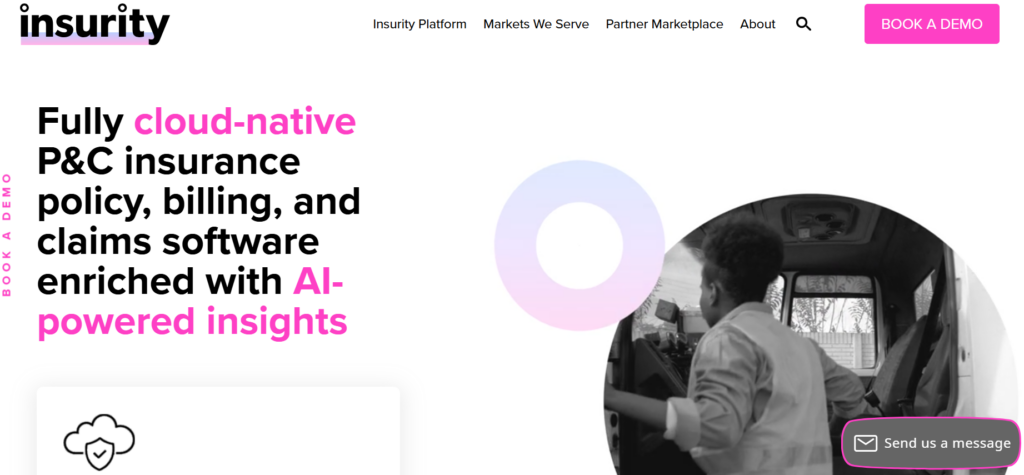
Insurity offers data-driven solutions for claims management and underwriting. Their cloud-based tools streamline operations and improve customer satisfaction.
Company Identification:
- Powers 35 of the top 40 US insurers.
- It specializes in SaaS solutions for complex claims processing.
- USP: Data-powered insights for efficient claims processing.
- Key Offerings: Cloud Insurance Suite, Claims Analytics, Underwriting Solutions.
- Industries Served: Insurance, Risk Management.
8. Claimable
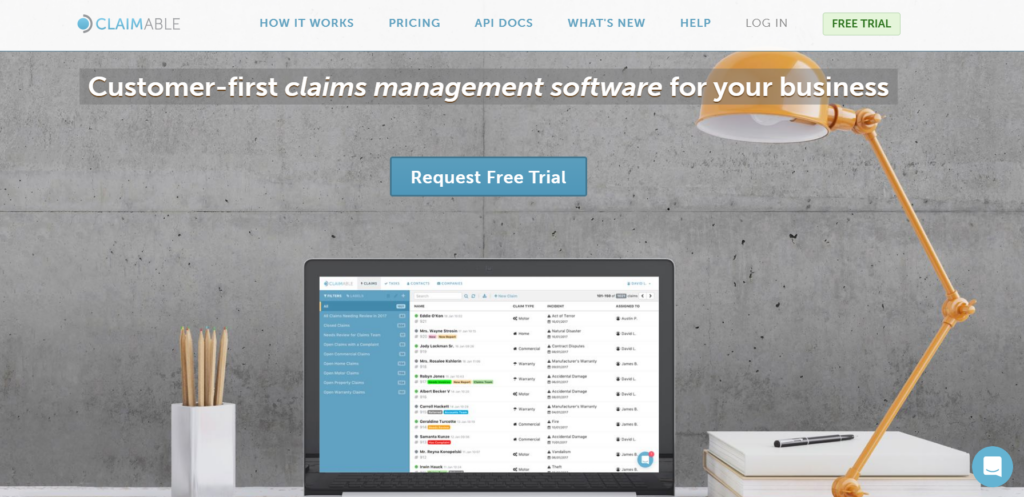
Claimable provides simple, intuitive claims management software for small—and mid-sized insurers. Their platform is user-friendly and designed to maximize productivity.
Company Identification:
- UK-based provider specializing in SME insurers.
- Emphasizes customer communication with real-time updates.
- USP: Intuitive design tailored for smaller insurers.
- Key Offerings: Claims Tracking, Customer Communication Tools.
- Industries Served: Small and Medium-Sized Insurers.
9. Riskonnect
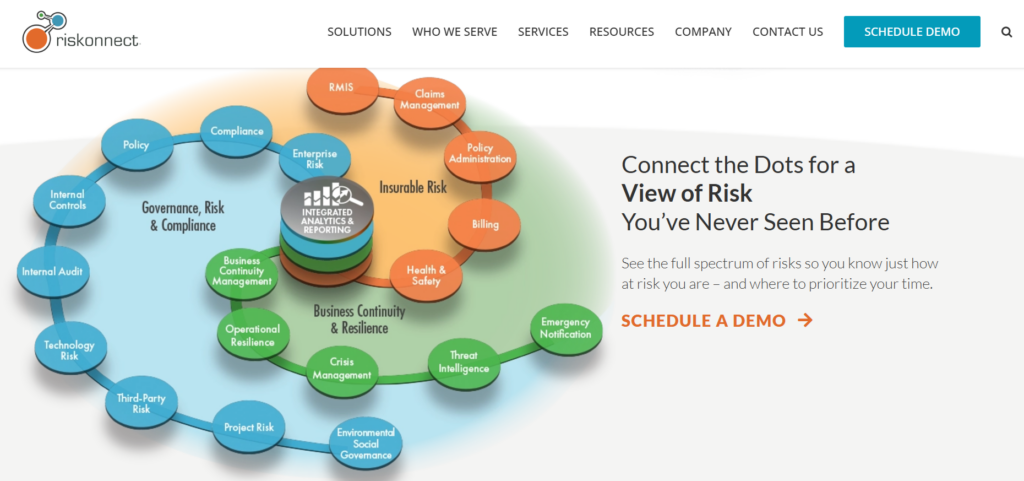
Riskonnect delivers enterprise risk management solutions with comprehensive claims management capabilities. Their tools provide deep insights to minimize risk and improve claim outcomes.
Company Identification:
- Offers a comprehensive enterprise risk management platform.
- Specializes in integrating risk management with claims workflows.
- USP: Integrated risk management with strong analytics.
- Key Offerings: Risk Management Suite, Claims Analytics.
- Industries Served: Insurance, Risk Management, Healthcare.
10. EIS Group
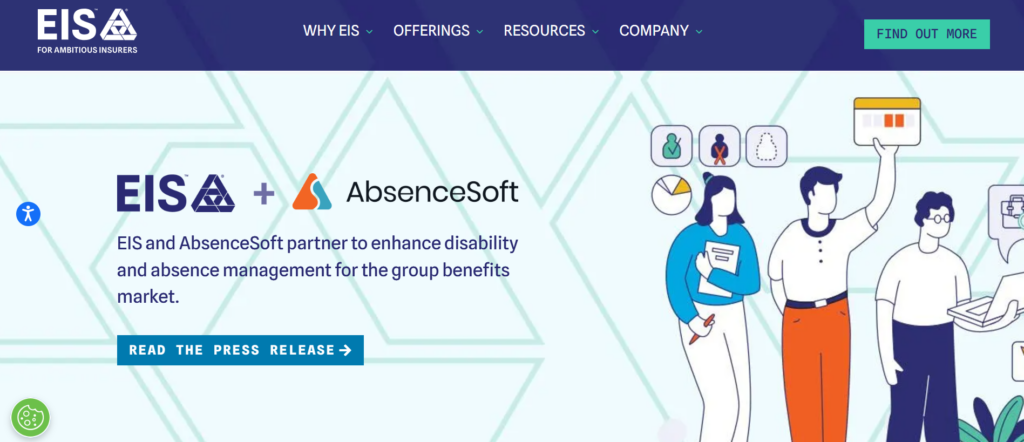
EIS Group provides next-gen insurance solutions with robust claims capabilities. Their cloud-native platform is designed for rapid innovation and growth.
Company Identification:
- Known for cloud-native, microservices-based architecture.
- Focuses on empowering insurers with API-driven solutions.
- USP: Modern architecture designed for digital transformation.
- Key Offerings: PolicyCore, ClaimsCore, BillingCore.
- Industries Served: Insurance, Health, Automotive.
11. FINEOS

FINEOS is a global leader in claims management solutions for life, accident, and health insurance. Its core platform emphasizes efficiency and customer satisfaction, offering seamless integration across business functions.
Company Identification:
- Specializes in group and voluntary benefits claims management.
- Serves 7 of the 10 largest group life insurers globally.
- USP: Advanced solutions for life, accident, and health insurance markets.
- Key Offerings: Claims Management, Absence Management, Policy Administration.
- Industries Served: Life, Accident, and Health Insurance.
12. Majesco
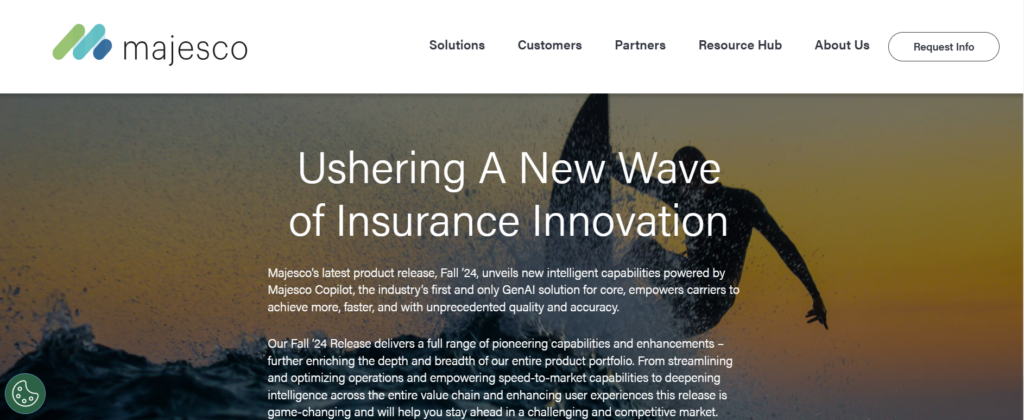
Majesco provides cloud-based solutions for insurance core systems, data analytics, and digital transformation. Its platform enables insurers to deliver superior customer experiences and drive operational excellence.
Company Identification:
- Recognized for its customer-centric innovation strategy.
- Serves over 200 insurers globally, ranging from startups to Tier 1 enterprises.
- USP: Comprehensive digital transformation solutions for insurers.
- Key Offerings: Policy, Billing, and Claims Management, Digital Solutions.
- Industries Served: Life, P&C, Health, and Group Benefits Insurance.
13. 360Globalnet

360Globalnet delivers digital-first claims solutions, offering end-to-end management with a strong focus on customer engagement. Their platform empowers insurers to resolve claims quickly through innovative self-service tools.
Company Identification:
- A pioneer in no-code claims technology.
- Supports self-service claims reporting via AI-driven platforms.
- USP: Digital-first claims management with self-service capabilities.
- Key Offerings: Digital Claims Management, Customer Self-Service Platforms.
- Industries Served: Property, Auto, Life Insurance.
14. A1 Tracker
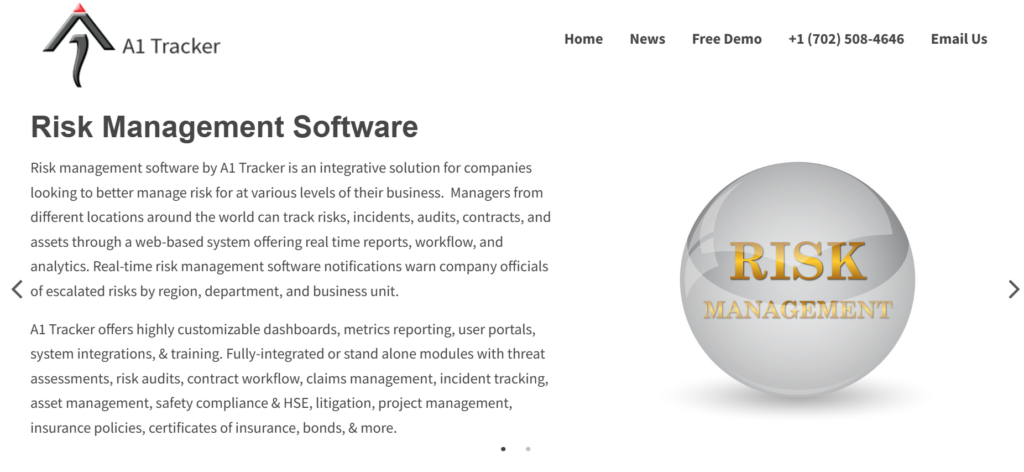
A1 Tracker provides highly customizable claims management software for risk management and compliance. Its tools streamline workflows and ensure accurate reporting.
Company Identification:
- Offers advanced reporting and analytics for risk and claims management.
- Strong in compliance-focused insurance workflows.
- USP: Customizable risk management tools for compliance-driven insurers.
- Key Offerings: Claims and Risk Management Software, Reporting Tools.
- Industries Served: Insurance, Healthcare, Corporate Risk Management.
15. Snapsheet
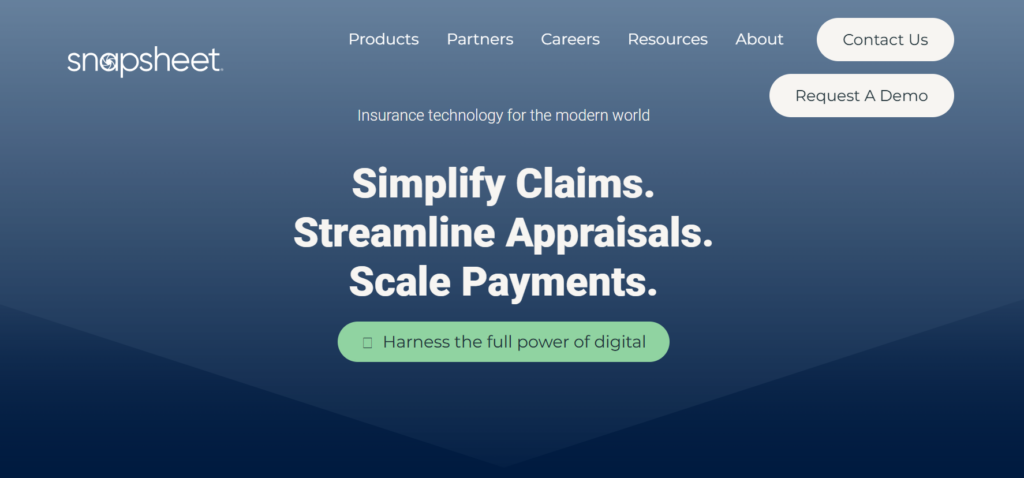
Snapsheet is a cloud-native claims management platform designed for digital insurers. Its focus on automation and AI helps insurers reduce processing times and improve customer experiences.
Company Identification:
- A leading innovator in virtual appraisals and digital claims workflows.
- Offers seamless integration with third-party platforms.
- USP: Cloud-native platform with advanced automation capabilities.
- Key Offerings: Digital Claims Management, Virtual Appraisals.
- Industries Served: Property & Casualty, Auto Insurance.
16. JW Software

JW Software specializes in claims management and tracking solutions for small to mid-sized insurers. Its system is highly adaptable to industry-specific needs.
Company Identification:
- Focuses on cost-effective solutions for SMEs.
- Known for excellent customer support and post-implementation services.
- USP: Cost-effective solutions tailored for small to mid-sized insurers.
- Key Offerings: Policy Administration, Claims Tracking, Risk Management.
- Industries Served: Small and Medium-Sized Insurers.
17. BriteCore

BriteCore offers a cloud-based, fully automated platform for insurance claims and policy administration. It is designed to meet the needs of modern insurers seeking innovation and scalability.
Company Identification:
- Trusted by over 100 insurers globally.
- Combines claims management with underwriting and policy administration in one system.
- USP: Unified platform for claims, policies, and underwriting.
- Key Offerings: PolicyCore, ClaimsCore, BillingCore.
- Industries Served: Property and Casualty Insurance.
Conclusion
The insurance claims management software market is poised for significant growth in 2025, fueled by innovation and a growing demand for customer-centric solutions. Companies at the forefront of this evolution are shaping the industry by offering advanced tools that streamline workflows, improve accuracy, and enhance user experiences.
In today’s digital landscape, well-customized insurance software is essential for optimizing workflows and improving service delivery. Tailored solutions can significantly enhance professional efficiency, save time and money, and assist with routine tasks and complex processes. By adopting personalized insurance software, you’re investing in cutting-edge technologies that keep you ahead of the curve in the competitive insurance industry.
With a wide array of popular software solutions, you can choose the one that best meets your business needs. Whether you are a large insurance provider or a small-to-medium enterprise (SME), these software providers offer versatile solutions designed to accommodate various operational needs, ensuring your business can scale effectively while enhancing customer satisfaction.
FAQs
Claims management software streamlines the claims process, reducing costs, improving efficiency, and enhancing customer satisfaction.
Consider scalability, integration capabilities, compliance features, and the ability to customize workflows to suit your unique requirements.
Yes, most modern claims management solutions are designed to integrate with CRM, underwriting, and policy management systems.
Cloud-based solutions offer scalability, remote accessibility, and faster implementation times. They also ensure automatic updates, enhanced security, and integration with other cloud-based systems.
Automation reduces the need for manual intervention, streamlines repetitive tasks, improves processing speed, reduces errors, and allows staff to focus on higher-priority tasks, ultimately leading to better efficiency and cost savings.
Yes, many claims management software providers offer customizable and flexible solutions designed for niche insurance sectors, such as life, health, disability, or property and casualty, enabling them to meet the unique needs of these markets.
Related Articles
-
Will Cloud Technology Adoption expedite even after the Pandemic?
Cloud is here to stay! The global pandemic and lockdown entailed by COVID-19 was the most challenging state of affairs the IT industry ever faced. Most certainly, it revolutionized the
-
Are enterprise teams the next big thing in the freelance revolution?
Progressively maintain extensive infomediaries via extensible niches. Dramatically disseminate standardized metrics after resource-leveling processes. Objectively pursue diverse catalysts for change for interoperable meta-services.
-
Top Cloud Computing Service Models To Know About
Cloud computing is a technology that deals with a pool of various computing resources, like servers, networks, and applications. However, it is mainly used as a storage pool that any



